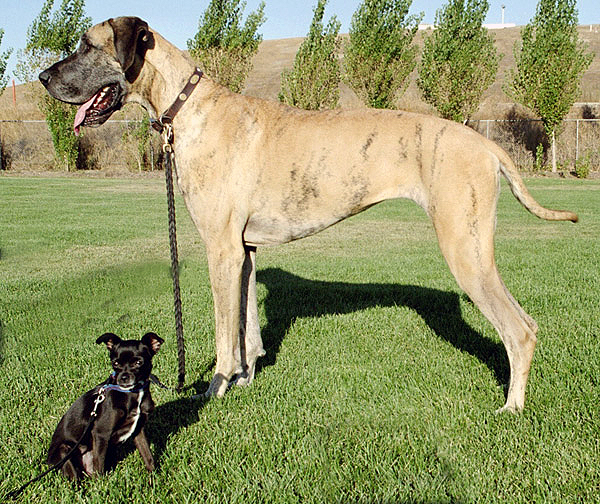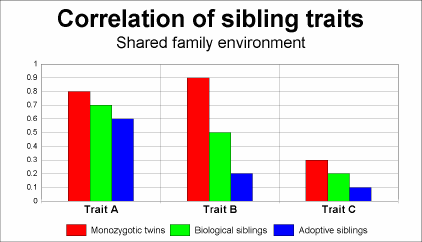|
History Of Eugenics
The history of eugenics is the study of development and advocacy of ideas related to eugenics around the world. Early eugenic ideas were discussed in Ancient Greece and Ancient Rome, Rome. The height of the modern eugenics movement came in the late 19th and early 20th centuries. Ancient eugenics According to Plutarch#Spartan lives and sayings, Plutarch, in Sparta every proper citizen's child was inspected by the council of elders, the Gerousia, which determined whether or not the child was fit to live. If the child was deemed unfit, the child was thrown into a chasm. Plutarch is the sole historical source for the Spartan practice of systemic infanticide motivated by eugenics. While infanticide was practiced by Greeks, no contemporary sources support Plutarch's claims of mass infanticide motivated by eugenics. In 2007 the suggestion that infants were dumped near Mount Taygete was called into question due to a lack of physical evidence. Anthropologist Theodoros Pitsios' research ... [...More Info...] [...Related Items...] OR: [Wikipedia] [Google] [Baidu] |
Eugenics
Eugenics is a set of largely discredited beliefs and practices that aim to improve the genetic quality of a human population. Historically, eugenicists have attempted to alter the frequency of various human phenotypes by inhibiting the fertility of those considered inferior, or promoting that of those considered superior. The contemporary history of eugenics began in the late 19th century, when a popular eugenics movement emerged in the United Kingdom, and then spread to many countries, including the United States, Canada, Australia, and most European countries (e.g. Sweden and Germany). In this period, people from across the political spectrum espoused eugenics. Many countries adopted eugenic policies intended to improve the quality of their populations. Historically, the idea of ''eugenics'' has been used to argue for a broad array of practices ranging from prenatal care for mothers deemed genetically desirable to the forced sterilization and murder of those deemed unf ... [...More Info...] [...Related Items...] OR: [Wikipedia] [Google] [Baidu] |
Intellectual History
Intellectual history (also the history of ideas) is the study of the history of human thought and of intellectuals, people who conceptualization, conceptualize, discuss, write about, and concern themselves with ideas. The investigative premise of intellectual history is that ideas do not develop in isolation from the thinkers who conceptualize and apply those ideas; thus the intellectual historian studies ideas in two contexts: (i) as abstract propositions for critical application; and (ii) in concrete terms of culture, life, and history. As a field of intellectual enquiry, the history of ideas emerged from the European disciplines of ''Kulturgeschichte'' (Cultural History) and ''Geistesgeschichte'' (Intellectual History) from which historians might develop a global intellectual history that shows the parallels and the interrelations in the history of critical thinking in every society. Likewise, the history of reading, and the history of the book, about the material aspects of Boo ... [...More Info...] [...Related Items...] OR: [Wikipedia] [Google] [Baidu] |
Mores
Mores (, sometimes ; , plural form of singular , meaning "manner, custom, usage, or habit") are social norms that are widely observed within a particular society or culture. Mores determine what is considered morally acceptable or unacceptable within any given culture. A folkway is what is created through interaction and that process is what organizes interactions through routine, repetition, habit and consistency. William Graham Sumner (1840–1910), an early United States of America, U.S. sociologist, introduced both the terms "mores" (1898) and "folkways" (1906) into modern sociology. Mores are strict in the sense that they determine the difference between right and wrong in a given society, and people may be punished for their immorality which is common place in many societies in the world, at times with disapproval or ostracizing. Examples of traditional customs and conventions that are mores include lying, cheating, harm, causing harm, sobriety, alcohol use, illicit dru ... [...More Info...] [...Related Items...] OR: [Wikipedia] [Google] [Baidu] |
Artificial Selection
Selective breeding (also called artificial selection) is the process by which humans use animal breeding and plant breeding to selectively develop particular phenotypic traits (characteristics) by choosing which typically animal or plant males and females will sexually reproduce and have offspring together. Domesticated animals are known as breeds, normally bred by a professional breeder, while domesticated plants are known as varieties, cultigens, cultivars, or breeds. Two purebred animals of different breeds produce a crossbreed, and crossbred plants are called hybrids. Flowers, vegetables and fruit-trees may be bred by amateurs and commercial or non-commercial professionals: major crops are usually the provenance of the professionals. In animal breeding artificial selection is often combined with techniques such as inbreeding, linebreeding, and outcrossing. In plant breeding, similar methods are used. Charles Darwin discussed how selective breeding had be ... [...More Info...] [...Related Items...] OR: [Wikipedia] [Google] [Baidu] |
Inheritance Of Intelligence
Research on the heritability of intelligence quotient (IQ) inquires into the degree of variation in IQ within a population that is due to genetic variation between individuals in that population. There has been significant controversy in the academic community about the heritability of IQ since research on the issue began in the late nineteenth century. Intelligence in the normal range is a polygenic trait, meaning that it is influenced by more than one gene, and in the case of intelligence at least 500 genes. Further, explaining the similarity in IQ of closely related persons requires careful study because environmental factors may be correlated with genetic factors. Outside the normal range, certain single gene genetic disorders, such as phenylketonuria, can negatively affect intelligence. Early twin studies of adult individuals have found a heritability of IQ between 57% and 73%, with some recent studies showing heritability for IQ as high as 80%. IQ goes from being weakly co ... [...More Info...] [...Related Items...] OR: [Wikipedia] [Google] [Baidu] |
Hereditary Genius
''Hereditary Genius: An Inquiry Into Its Laws and Consequences'' is a book by Francis Galton about the genetic inheritance of intelligence. It was first published in 1869 by Macmillan Publishers. The first American edition was published by D. Appleton & Company in 1870. It was Galton's first major work written from a hereditarian perspective. It was later referred to as "the first serious study of the inheritance of intelligence" and as "the beginning of scientific interest in the topic of genius." In the book, Galton claimed that the sons of men whom he considered "eminent" in a given profession were more likely to achieve such eminence themselves than if they were not closely related to eminent individuals. He interpreted this pattern as evidence for genetic transmission of human intelligence, without considering the environment. Nicholas W. Gillham stated "He (Galton) dismissed the obvious objection that an eminent father was more likely to find a suitable position for his ... [...More Info...] [...Related Items...] OR: [Wikipedia] [Google] [Baidu] |
Nature Versus Nurture
Nature versus nurture is a long-standing debate in biology and society about the relative influence on human beings of their genetics, genetic inheritance (nature) and the environmental conditions of their development (nurture). The alliterative expression "nature and nurture" in English has been in use since at least the Elizabethan era, Elizabethan period and goes back to medieval French. The complementary combination of the two concepts is an ancient concept (). Nature is what people think of as pre-wiring and is influenced by genetic inheritance and other biological factors. Nurture is generally taken as the influence of external factors after conception e.g. the product of exposure, experience and learning on an individual. The phrase in its modern sense was popularized by the Victorian era, Victorian polymath Francis Galton, the modern founder of eugenics and behavioral genetics when he was discussing the influence of heredity and Social environment, environment on social adv ... [...More Info...] [...Related Items...] OR: [Wikipedia] [Google] [Baidu] |
Donald Angus MacKenzie
Donald Angus MacKenzie (born 3 May 1950) is a professor of sociology at the University of Edinburgh, Scotland. His work constitutes a crucial contribution to the field of science and technology studies. He has also developed research in the field of social studies of finance. He has undertaken widely cited work on the history of statistics, eugenics, nuclear weapons, computing and finance, among other things. In 1978 he earned a PhD from the University of Edinburgh for his thesis on the development of statistical theory in Britain. In August 2006, MacKenzie was awarded the Chancellor's Award from Prince Philip, Duke of Edinburgh and Chancellor of the University of Edinburgh, for his contributions to the field of science and technology studies. He is also the winner of the 1993 Robert K. Merton Award of the American Sociological Association The American Sociological Association (ASA) is a non-profit organization dedicated to advancing the discipline and profession of sociology ... [...More Info...] [...Related Items...] OR: [Wikipedia] [Google] [Baidu] |
Regression Towards The Mean
In statistics, regression toward the mean (also called regression to the mean, reversion to the mean, and reversion to mediocrity) is the phenomenon where if one sample of a random variable is extreme, the next sampling of the same random variable is likely to be closer to its mean. Furthermore, when many random variables are sampled and the most extreme results are intentionally picked out, it refers to the fact that (in many cases) a second sampling of these picked-out variables will result in "less extreme" results, closer to the initial mean of all of the variables. Mathematically, the strength of this "regression" effect is dependent on whether or not all of the random variables are drawn from the same distribution, or if there are genuine differences in the underlying distributions for each random variable. In the first case, the "regression" effect is statistically likely to occur, but in the second case, it may occur less strongly or not at all. Regression toward the ... [...More Info...] [...Related Items...] OR: [Wikipedia] [Google] [Baidu] |
Civilization
A civilization (also spelled civilisation in British English) is any complex society characterized by the development of state (polity), the state, social stratification, urban area, urbanization, and symbolic systems of communication beyond natural language, signed or spoken languages (namely, writing systems). Civilizations are organized around densely-populated settlements, divided into more or less rigid hierarchy, hierarchical social classes of division of labour, often with a ruling elite and a subordinate urban and rural populations, which engage in intensive agriculture, mining, small-scale manufacture and trade. Civilization concentrates power, extending human control over the rest of nature, including over other human beings. Civilizations are characterized by elaborate agriculture, architecture, infrastructure, Innovation, technological advancement, currency, taxation, regulation, and specialization of labour. Historically, a civilization has often been understo ... [...More Info...] [...Related Items...] OR: [Wikipedia] [Google] [Baidu] |
Natural Selection
Natural selection is the differential survival and reproduction of individuals due to differences in phenotype. It is a key mechanism of evolution, the change in the Heredity, heritable traits characteristic of a population over generations. Charles Darwin popularised the term "natural selection", contrasting it with selective breeding, artificial selection, which is intentional, whereas natural selection is not. Genetic diversity, Variation of traits, both Genotype, genotypic and phenotypic, exists within all populations of organisms. However, some traits are more likely to facilitate survival and reproductive success. Thus, these traits are passed the next generation. These traits can also become more Allele frequency, common within a population if the environment that favours these traits remains fixed. If new traits become more favoured due to changes in a specific Ecological niche, niche, microevolution occurs. If new traits become more favoured due to changes in the ... [...More Info...] [...Related Items...] OR: [Wikipedia] [Google] [Baidu] |
Origin Of Species
''On the Origin of Species'' (or, more completely, ''On the Origin of Species by Means of Natural Selection, or the Preservation of Favoured Races in the Struggle for Life'')The book's full original title was ''On the Origin of Species by Means of Natural Selection, or the Preservation of Favoured Races in the Struggle for Life''. In the 1872 sixth edition, "On" was omitted, so the full title is ''The origin of species by means of natural selection, or the preservation of favoured races in the struggle for life.'' This edition is usually known as ''The Origin of Species.'' The 6th is Darwin's final edition; there were minor modifications in the text of certain subsequent issues. See Freeman, R. B. In Van Wyhe, John, ed. ''Darwin Online: On the Origin of Species'', 2002. is a work of scientific literature by Charles Darwin that is considered to be the foundation of evolutionary biology. It was published on 24 November 1859. Darwin's book introduced the scientific theory that p ... [...More Info...] [...Related Items...] OR: [Wikipedia] [Google] [Baidu] |






